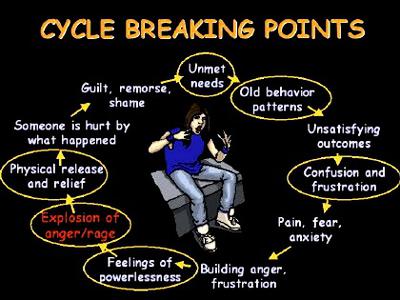
“They teach us right from wrong.”Īs we grow up, we don’t need to rely on guilt or shame as much as a child learning their way around the world, she says.
#Pathological guilt professional
“It’s important to go back to why those feelings are adaptive initially,” says Tracy Keller, a licensed professional counselor in Milwaukee, Wisconsin. Here you will find options to view and activate subscriptions, manage institutional settings and access options, access usage statistics, and more.It may take some time to feel less guilty or ashamed, but it is possible. If you believe you should have access to that content, please contact your librarian.įor librarians and administrators, your personal account also provides access to institutional account management. The institutional subscription may not cover the content that you are trying to access. Oxford Academic is home to a wide variety of products. View the institutional accounts that are providing access.View your signed in personal account and access account management features.Some societies use Oxford Academic personal accounts to provide access to their members.Ĭlick the account icon in the top right to: See below.Ī personal account can be used to get email alerts, save searches, purchase content, and activate subscriptions.

Some societies use Oxford Academic personal accounts to provide access to their members. If you do not have a society account or have forgotten your username or password, please contact your society. Do not use an Oxford Academic personal account. When on the society site, please use the credentials provided by that society.If you see ‘Sign in through society site’ in the sign in pane within a journal: Many societies offer single sign-on between the society website and Oxford Academic. Society member access to a journal is achieved in one of the following ways: If you cannot sign in, please contact your librarian. If your institution is not listed or you cannot sign in to your institution’s website, please contact your librarian or administrator.Įnter your library card number to sign in. Following successful sign in, you will be returned to Oxford Academic.When on the institution site, please use the credentials provided by your institution.Select your institution from the list provided, which will take you to your institution's website to sign in.Click Sign in through your institution.Shibboleth / Open Athens technology is used to provide single sign-on between your institution’s website and Oxford Academic. This authentication occurs automatically, and it is not possible to sign out of an IP authenticated account.Ĭhoose this option to get remote access when outside your institution. Typically, access is provided across an institutional network to a range of IP addresses. If you are a member of an institution with an active account, you may be able to access content in one of the following ways: Get help with access Institutional accessĪccess to content on Oxford Academic is often provided through institutional subscriptions and purchases.

The result is a nuanced counterbalance to the study of altruism and a call for further research. Each of these approaches points to one disturbing truth: What we value so much, the altruistic “good” side of human nature, can also have a dark side.


This volume presents psychological, neuropsychological, biological, and evolutionary approaches that help account for pathologically altruistic behavior, and goes on to discuss its diverse and profound societal implications. But instead of overall beneficial outcomes, this altruism instead has irrational (from the point of view of an outside observer) and substantial negative consequences to the other or even to the self. In essence, pathological altruism might be thought of as any behavior or personal tendency in which either the stated aim or the implied motivation is to promote the welfare of another. Although the term pathological altruism has been used to a limited degree in psychodynamic circles, there has been inadequate study of the phenomenon in general, and almost none from a biological, genetic, and evolutionary perspective. Therefore it is worthwhile to study how well-meaning altruism can shade into pathology. Many harmful deeds-from codependency to suicide martyrdom to genocide-are committed with the altruistic intention of helping companions or one’s own in-group.


 0 kommentar(er)
0 kommentar(er)
